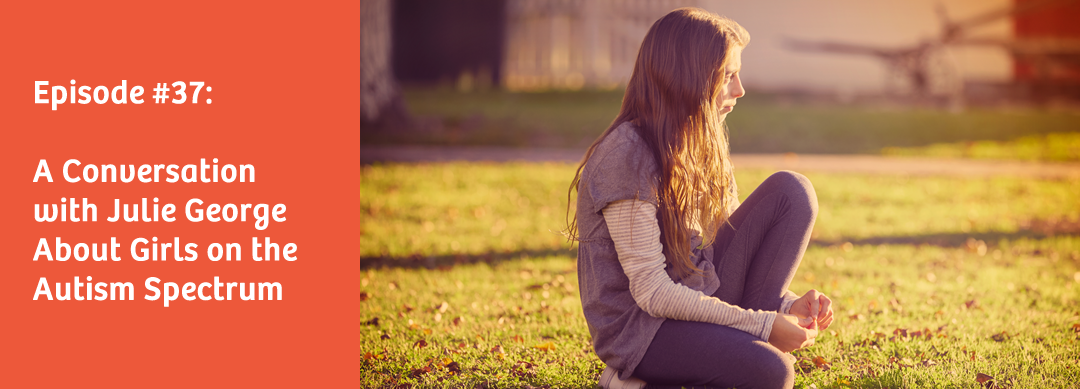
In this episode of the TiLT Parenting Podcast, I bring back to the show Julie George, a behavioral and education consultant who specializes in working with autistic girls. People are starting to recognize that autism presents differently in girls than in boys, and as a result, many autistic girls are slipping through the cracks and not getting the diagnoses, and the support, they need.
Julie is highly tuned in to how these girls tick, and explains how their social motivation both masks their challenges and can be the key to helping them develop the skills they need to thrive. In our conversation we talk about what autism looks like in girls, the importance of letting kids in on their diagnoses as early as possible, why schools are missing catching autism in girls, and what the real challenges are for girls versus boys with the same diagnoses—low self-esteem.
 About Julie: Julie George, M.Ed, BCBA, is a behavior and educational consultant. She received her master’s degree in elementary education from Northern Arizona University in 2006. She works with autistic adolescents (ages 10-18) in the areas of social skills, executive functioning and emotion regulation in her private practice in Seattle.
About Julie: Julie George, M.Ed, BCBA, is a behavior and educational consultant. She received her master’s degree in elementary education from Northern Arizona University in 2006. She works with autistic adolescents (ages 10-18) in the areas of social skills, executive functioning and emotion regulation in her private practice in Seattle.
THINGS YOU’LL LEARN FROM THIS EPISODE:
- The differences in how autism presents in girls versus boys
- Why so many girls are being missed when it comes to diagnoses for autism and ADHD
- Julie’s definition of the two categories of girls on the spectrum she sees in her work: “quiet and bright” and “autism with an attitude”
- The consequence of missing an autism diagnosis at an early age for girls
- Why the biggest challenge for autistic girls is low self-esteem and negative self-talk
- Why Julie believes the earlier the disclosure to a child about their diagnosis the better
- How parents can support their autistic daughters
- The important of teaching autistic girls (and all kids) to notice and tune in to their intuition
RESOURCES MENTIONED:
- Asperger’s and Girls: World-Renowned Experts Join Those with Asperger’s Syndrome to Resolve Issues That Girls and Women Face Every Day! by Tony Attwood, et al
- Girls Growing Up on the Autism Spectrum: What Parents and Professionals Should Know About the Pre-teen and Teenage Years by Shana Nichols
- Aspergirls: Empowering Females with Asperger Syndrome by Rudy Simone
- Parenting Girls on the Autism Spectrum: Overcoming the Challenges and Celebrating the Gifts by Eileen Riley-Hall
- The Girl With The Curly Hair – Asperger’s and Me by Alis Rowe
- Sisterhood of the Spectrum: An Asperger Chick’s Guide to Life by Jennifer Cook O’Toole
 I’m happy to be highlighting the work of Understood.org this week, a nonprofit that helps parents whose children, ages 3–20, are struggling with learning and attention issues. Understood’s goal is to empower these parents to understand their children’s issues and relate to their experiences. With this knowledge, parents can make effective choices that propel their children from simply coping to truly thriving. Click on the image the left to learn more!
I’m happy to be highlighting the work of Understood.org this week, a nonprofit that helps parents whose children, ages 3–20, are struggling with learning and attention issues. Understood’s goal is to empower these parents to understand their children’s issues and relate to their experiences. With this knowledge, parents can make effective choices that propel their children from simply coping to truly thriving. Click on the image the left to learn more!




